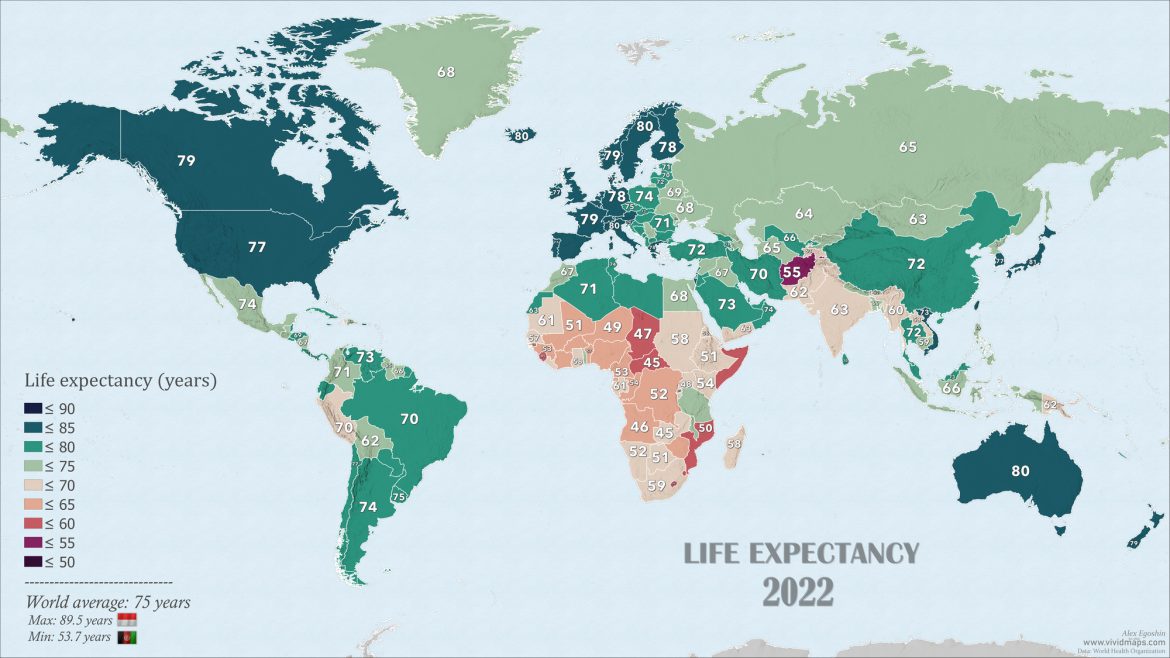769
By Lizzy Chirkpi
A new report from the United Nations Population Division, published by the Worldometers, reveals that global life expectancy at birth has climbed to 73.5 years, marking a historic milestone in human longevity.
The report attributes this progress to decades of advancement in medicine, nutrition, and living standards across much of the world.
However, the data also expose a widening gap between countries, revealing how geography, wealth, and public health systems continue to shape the length and quality of human life.
According to the report, women live longer than men globally, averaging 76.2 years compared to 70.9 years for men, a difference largely linked to biological and lifestyle factors. Yet, the more striking divide lies between nations.
At the top of the chart, Hong Kong leads the world with an average life expectancy of 85.77 years, closely followed by Japan, where citizens live an average of 84.0 years. In South Korea, the average lifespan stands at 83.4 years, reflecting rapid improvements in healthcare, diet, and social welfare that have transformed the nation over the past half-century.
Further across the Pacific, French Polynesia also ranks among the top performers, with a life expectancy of 84.3 years. Experts attribute this to a balanced island diet, close-knit family structures, and access to modern medical care despite its remote geography.
“Humanity has made remarkable progress in extending life expectancy,” said Dr. Leo Martinez, a UN population researcher. “But the real challenge is ensuring that every child, regardless of birthplace or income, has an equal chance to live a full life.”
In contrast, many developing countries remain far behind. Nigeria, for instance, records a life expectancy of just 54.78 years one of the lowest globally. Similar figures are seen across several parts of sub-Saharan Africa, where preventable diseases, malnutrition, and weak health infrastructure still cut lives short.
Analysts warn that while wealthier nations now grapple with aging populations and lifestyle-related illnesses, poorer nations face the opposite crisis lives shortened by poverty and preventable deaths. “It’s a tale of two worlds,” said Dr. Martinez. “In one, people live too long to retire comfortably; in the other, too many never live long enough to see their children grow.”
The findings reaffirm a sobering reality that the world is living longer than ever before, yet longevity remains an uneven privilege, one still shaped by where people are born, what resources they can access, and how societies invest in health and opportunity.



